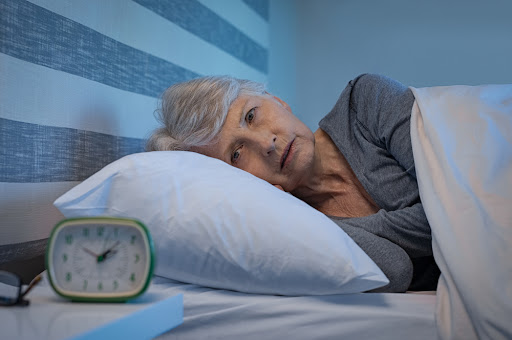It’s no secret that sleep is necessary for our overall physical and mental health. For the average adult, doctors recommend sleeping at least 7 hours each night to feel well-rested and promote optimal health. Yet, nearly 80% of adults with psoriatic arthritis experience some degree of fatigue.1
Although psoriatic disease has been studied for decades, there is still much to learn about how it affects sleep quality. For example, we know that fatigue is a telltale sign of a psoriatic arthritis flare-up but what causes it still eludes experts. Inflammation, pain, anxiety and depression, PsA medications, and other health conditions could all contribute to fatigue.2
At ARBDA, we have a team of licensed specialists who work with patients one-on-one. We understand that there is no one-size-fits-all solution when it comes to chronic pain management, and we’re here to provide you with the best psoriatic arthritis treatment. If you have PsA and suffer from recurring fatigue, read on to learn more.
Psoriatic Arthritis Fatigue Affects Quality of Life
Psoriatic disease is characterized by fatigue, which may be difficult and debilitating to deal with. In fact, exhaustion is often cited by patients as one of the most bothersome symptoms — right after joint pain.3
According to a recent study published in The Journal of Rheumatology, greater fatigue levels can negatively affect physical health, work productivity, and overall quality of life.4 Additionally, anxiety and depression were more common among patients with higher levels of fatigue severity, which is affected by:
- Patient’s pain levels
- Patient’s age or disease duration
- The severity of the patient’s psoriatic arthritis
- The total body area affected by PsA
- The number of tender or swollen joints
Living with chronic fatigue due to psoriatic arthritis is no walk in the park, but it can be manageable with the help of a caring physician. Unfortunately, the study found that doctors reported lethargy in only 32% of patients.5 To put that into perspective, fatigue was reported by almost 80% of people with psoriatic arthritis who participated in this study. This shows that fatigue is underacknowledged as a symptom of PsA, which can affect the patient’s treatment plan.
Psoriatic Arthritis Fatigue Not Frequently Treated
Another study reported at ARC Convergence 2022 found that 46.5% of patients with poor sleep quality were not receiving treatment for insomnia.6
Among those affected, women with higher disease severity, a higher total body area affected, fatigue, as well as anxiety and depression, were more likely to have poor sleep quality. This correlates with the findings from the previous study.
However, the big takeaway is that fatigue research and management need to be prioritized in the psoriatic disease field to give patients the best care.
How to Manage Fatigue With Psoriatic Arthritis
Most people with psoriatic arthritis find that combating fatigue is one of their biggest challenges. It can be extremely difficult to prioritize your health and happiness when you’re constantly feeling tired. The best treatment for PsA fatigue is, of course, speaking with a specialist. Your doctor can adjust your treatment plan to help minimize fatigue. As a matter of fact, you shouldn’t make any changes to your lifestyle without consulting your doctor.
What you can do is eat healthy, stay active, and stick to a sleep schedule. Don’t drink caffeine or alcohol before bedtime. Perhaps the hardest tip to follow is this: avoid your cell phone, computer, and TV! Find other ways to relax that don’t involve electronic devices.
Consider investing in comfortable, supportive bedding as well. This will not only help you fall — and stay — asleep, but it might also help alleviate joint pain during a flare-up.
Visit the Top Psoriatic Arthritis Specialists at ARBDA
Are you suffering from the pain and fatigue caused by psoriatic arthritis? You don’t have to go through it alone. Our team of psoriasis disease specialists is only one phone call away, and we would be happy to determine the best treatment plan for you. Contact us to schedule an appointment at any of our six New Jersey locations.
5https://www.rheumatologyadvisor.com/home/topics/psoriatic-arthritis/fatigue-severity-associated-with-work-productivity-quality-of-life-in-psa/
6https://www.healio.com/news/rheumatology/20221205/poor-sleep-quality-among-patients-with-psa-not-frequently-treated


